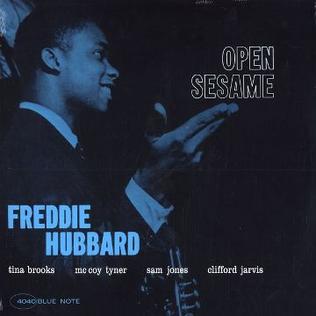Recent listening, current
Archived listening, 2013-2016
Showing posts with label sam jones. Show all posts
Showing posts with label sam jones. Show all posts
Wednesday, April 10, 2013
77. Nat Adderley / Work Song (1960)
Some corners of hard bop were already getting funky by 1960 but Nat's classic album still sounds ahead of the curve. Selections are like a hard bop stew, highly inspired music expressed in various forms of funkified rhythm and blues, bop, gospel, and truly aching ballad work. Sam Jones makes an impression on me. He slides all over the place and plays his choruses as if he has a guitar sitting on his lap. His doubling on cello and movement to the front line boldly pays big dividends. Wes Montgomery was in on the session, and between these two there's enough bluesy gumption to hold down that part of the fort. This doesn't stop everyone else from contributing, though. The early "Work Song" and Cannonball's "Sack of Woe" are a fine one-two punch, except they're separated by three equally impacting tracks. At times, Adderley breaks the sextet down to a trio or quartet so there's evidence that this group could be effective hitting on all six or with just half its compliment. It's an album with levels that has staying power for a reason, fine music thoroughly worth its salt.
Labels:
1960,
bobby timmons,
cornet,
hard bop,
jazz,
keter betts,
louis hayes,
nat adderley,
percy heath,
quartet,
review,
rhythm and blues,
riverside,
sam jones,
sextet,
soul jazz,
trio,
wes montgomery,
work song
Tuesday, March 5, 2013
51. Freddie Hubbard / Open Sesame (1960)
I think: Open Sesame. The title says, as if by magic, Freddie
Hubbard has arrived. It's is a very strong debut and an easy mark for
the core collection. We also get a great band. Tina Brooks on tenor really tears it up. On the title track, Brooks sinks his teeth into the riffs, blowing these long, stretchy phrases that step across the bars like hurdles and land back in time when he runs out of breath. He's a good man on ballads, too, like the droopy "But Beautiful." Behind the traps is Clifford Jarvis, two years shy of becoming a Saturnian. His energy, polyrhythmical claptrap and close work with Hubbard's improvisations add depth that is a few cuts above the standard hard bop set. Sam Jones plays big round notes in a sentimental and melodic style which at times reminds me of Ray Brown. He's aided everywhere by McCoy Tyner's drizzling fills and colorfully voiced chords. "Gypsy Blue" has a Latin tinge. The head has a cool arrangement where Hubbard and Brooks play in, and then slightly out of phase, hypnotically swinging it along. Hubbard's centerpiece is the rollicking "All or Nothing at All," where he shows off his chops in wild, flashy runs, rubber fingered flourishes, and big brassy blasts in the upper register. The guy's a natural who learned to improvise before he learned to read, and it shows.
Wednesday, February 27, 2013
45. Cannonball Adderley / Somethin' Else (1958)
I listen to this at least once a month, an album that is still fresh so many years after it was made, and a bona fide classic by many accounts. Like Kind of Blue, if I had to, I could hum the whole thing from memory. Their flavors are similar in more ways than one, yet the two records aren't really anything alike. But here it certainly feels like Miles is the leader. The patient tempos, arrangement style, and selections all speak to Davis' direction. He even takes the first choruses. The drum chair is Art Blakey this time, with Hank Jones on piano and Sam on bass. Like Kind of Blue, when Davis goes first, it gives Adderley some lines to think about, propelling him into new areas. Davis' own choruses are a mixture of pensive statements through the mute, or beautifully full-bodied open horn. Listen to Davis and Adderley trading licks on brother Nat's "Blues for Daddy-O," the smokey noir of "Autumn Leaves" or doing call and response on the Davis penned title track. Art Blakey was the perfect choice as drummer, and assertively swings the procession with his snare and hi hat, while Hank and Sam work closely tying up the other end. The mood of "Autumn Leaves" is largely created by the good work of Hank Jones, which never seems to end. Together these songs are a remarkable synthesis of talent and chemistry that's one of the best enduring works of jazz.
Subscribe to:
Posts (Atom)


